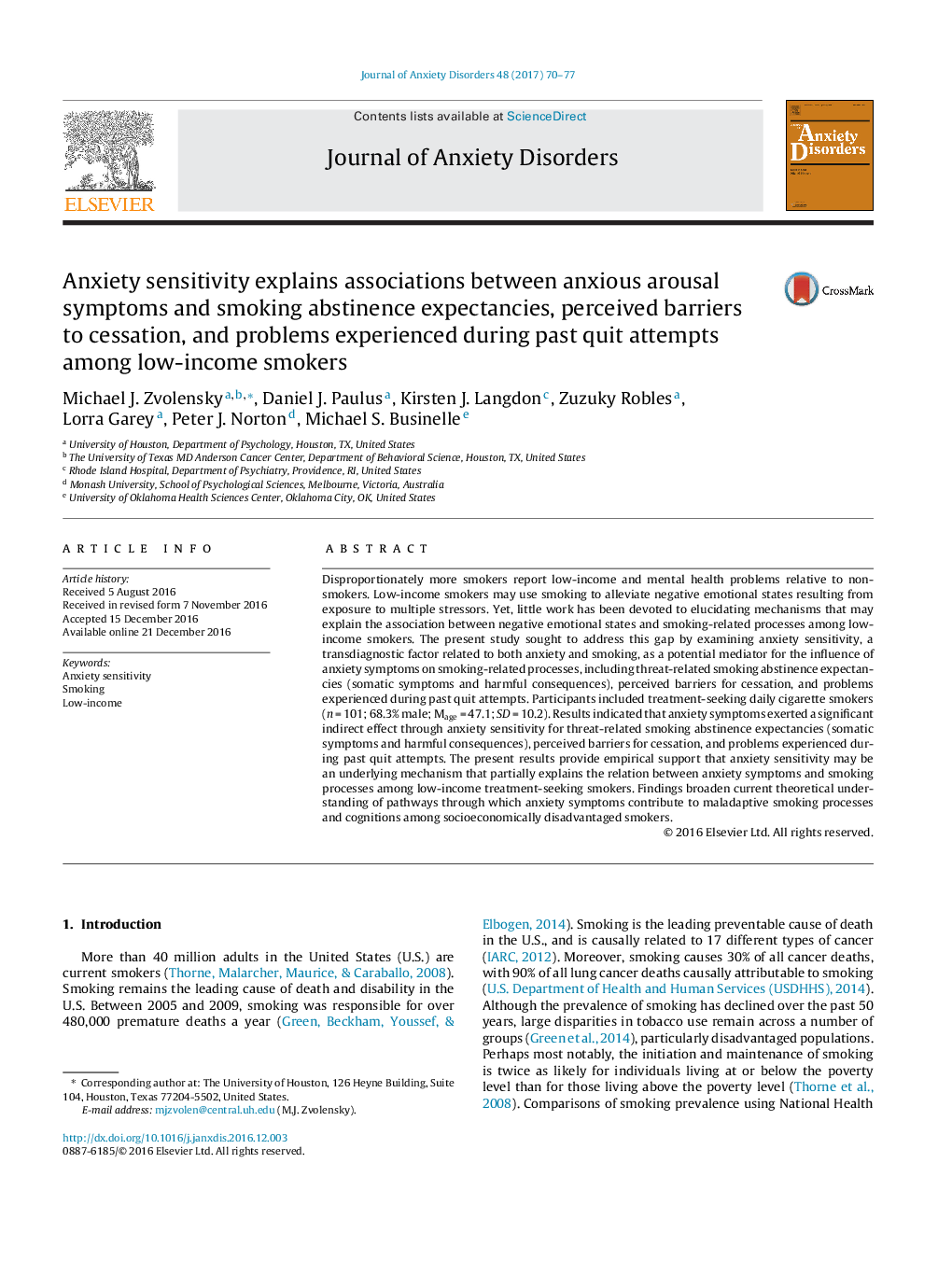| کد مقاله | کد نشریه | سال انتشار | مقاله انگلیسی | نسخه تمام متن |
|---|---|---|---|---|
| 5038890 | 1473030 | 2017 | 8 صفحه PDF | دانلود رایگان |
- Anxiety symptoms are associated with smoking processes.
- Anxiety sensitivity may be a mechanism underlying anxiety and smoking.
- Treatments targeting anxiety sensitivity may be warranted.
- Implications for treatment of anxiety and smoking among low income smokers.
Disproportionately more smokers report low-income and mental health problems relative to non-smokers. Low-income smokers may use smoking to alleviate negative emotional states resulting from exposure to multiple stressors. Yet, little work has been devoted to elucidating mechanisms that may explain the association between negative emotional states and smoking-related processes among low-income smokers. The present study sought to address this gap by examining anxiety sensitivity, a transdiagnostic factor related to both anxiety and smoking, as a potential mediator for the influence of anxiety symptoms on smoking-related processes, including threat-related smoking abstinence expectancies (somatic symptoms and harmful consequences), perceived barriers for cessation, and problems experienced during past quit attempts. Participants included treatment-seeking daily cigarette smokers (n = 101; 68.3% male; Mage = 47.1; SD = 10.2). Results indicated that anxiety symptoms exerted a significant indirect effect through anxiety sensitivity for threat-related smoking abstinence expectancies (somatic symptoms and harmful consequences), perceived barriers for cessation, and problems experienced during past quit attempts. The present results provide empirical support that anxiety sensitivity may be an underlying mechanism that partially explains the relation between anxiety symptoms and smoking processes among low-income treatment-seeking smokers. Findings broaden current theoretical understanding of pathways through which anxiety symptoms contribute to maladaptive smoking processes and cognitions among socioeconomically disadvantaged smokers.
Journal: Journal of Anxiety Disorders - Volume 48, May 2017, Pages 70-77
